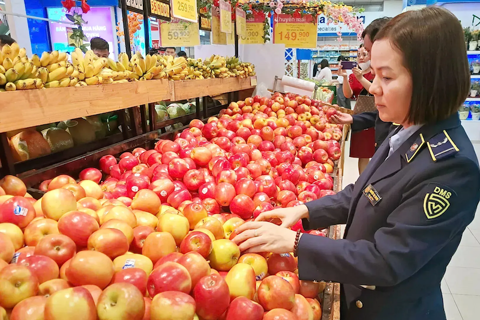Six global trends to shape Vietnam’s future: HSBC
If Vietnam is to reach its full potential in the coming years, it will have to effectively navigate several global megatrends that will shape its future.
CEO of HSBC Vietnam Tim Evans gave his prediction over the six global trends that will shape Vietnam’s future.
| CEO of HSBC Vietnam Tim Evans. |
According to Evans, Vietnam is recovering strongly as the country recuperates from the Covid-19 pandemic, which results in the economy shifting from survival mode to growth mode.
However, if Vietnam is to reach its full potential in the coming years, it will have to effectively navigate some global megatrends that will shape its future, he noted.
1. Climate change is both an opportunity and a challenge for a country like Vietnam. As a nation with an extensive coastline with nearly 100 million people to feed and one of the world’s most important rice producers, the prospect of rising sea levels and falling crop yields as the world warms is a threat to its well-being and prosperity.
Asia, and the Mekong Delta, in particular, are on the front line of climate change. If countries fail to take substantial action now, the region could face between US$2.8 trillion and US$4.7 trillion in lost annual GDP by 2050 – accounting for more than two-thirds of the impact of climate change on annual global GDP.
The World Bank in particular has warned that Vietnam is one of the top five countries likely to be adversely affected by climate change. Negative impacts from climate change will reduce the country’s national income by up to 3.5% of GDP by 2050.
Building a climate-friendly, low-carbon society and economy will need capital, innovation, and a global commitment to shared goals. Although tackling climate change is a severe challenge that the country is facing, it is also a huge opportunity. Industries such as information technology, biomedicine, new materials, and new energy are emerging as the new, more sustainable drivers of economic growth.
Vietnam will have to work hard to reduce its dependence on coal both as a source of power generation and as a major export. Coal currently accounts for about a third of the country’s operating energy mix but the government has recently committed to cutting it to less than 10% and boosting renewables to more than half from today’s 12% by 2045.
2. Digital. The pandemic has accelerated the shift towards a seamless digital world and has triggered changes in consumers’ behavior that are likely to have lasting effects.
The digital transformation will continue to drive the rapid integration of industry and technology, especially remote work, healthcare, education, entertainment, and financial services while reducing transaction costs, facilitating participation in global value chains, and improving market access and reach.
One of the most powerful effects of the digital revolution is the way that it has leveled the global playing field, allowing countries like Vietnam to compete with more advanced economies. Companies like VNG, MoMo, and VNPay – all unicorns founded in Vietnam – are world-class competitors, but if Vietnam is to continue to build on its success, it needs to continue to invest in education and accessibility to build a thriving digital ecosystem that drives innovation.
Within the context of digital transformation, protecting data security and privacy is critical, particularly as the metaverse continues to develop and grow. Vietnam needs to work regionally and globally on creating a unified data policy and approach.
3. Vaccine equity. Covid-19 is a reminder that countries are all in this together. Unless every country and every community can obtain vaccines quickly and fairly, no one will be able to return to normal, and a truly global economic recovery will not be possible.
An Economist Intelligence Unit (EIU) report indicates that rich countries have administered 100 times’ as many coronavirus vaccines as poor countries. The delays in inoculating the world will come with a high price tag. The report forecasts that the countries that have not yet vaccinated 60 percent of their population by mid-2022 will register GDP losses totaling US$2.3 trillion by 2025. Emerging economies will shoulder around two-thirds of these losses, further delaying economic convergence towards advanced economies.
Vietnam has been a model in this regard. Almost 80% of the population has already been vaccinated, one of the highest rates in the world. The Ministry of Health has set a target to complete the vaccination campaign for children aged 5 to 11 in the second quarter of this year.
This is a significant achievement for Vietnam, considering the position the country was in 12 months ago. And Vietnam has an opportunity to use its expertise to help neighbors reach herd immunity. Unless regional countries can achieve similar rates, South East Asia’s regional recovery will fail to reach its full potential. For instance, rates are still high in Thailand, a major hub for tourists en route to Vietnam.
Vietnam must strengthen global cooperation in vaccine research and development, production, raw material supply, distribution, logistics, and intellectual property exemptions, to help countries that struggle to compete with richer nations to obtain affordable vaccines and key medical supplies.
4. Trade. Covid-19 is continuing to cause disruptions to global supply chains, but trade still offers the shortest and most direct route back to economic growth.
Global trade has already recovered to pre-pandemic levels, and Evans expects trading patterns to continue to normalize as Covid-19 recedes even if rising interest rates will hurt consumption.
So far, Vietnam has signed 15 free trade agreements (FTAs) including the recent Regional Comprehensive Economic Partnership (RCEP) which has been officially in force since the beginning of this year, making it one of the most open economies globally.
These FTAs are expected to play a major role in boosting Vietnam’s economic growth this year. Since Vietnam has fully opened its borders for international travel from 15 March, the government wants to ensure that the country returns to its pre-pandemic growth cadence. This strategic goal can be achieved with the aid of Vietnam’s FTAs and other bilateral agreements.
Vietnam’s ratification of these agreements will open up a world of opportunities for Vietnamese corporates. That said, challenges remain as the country will need to embark on further domestic reforms to ensure it can remain competitive. Vietnam will also need to continue to work with other Asian nations to facilitate cross-regional investment flows and dismantle non-tariff barriers if the region is to reach its full trade potential.
5. Geopolitics. The conflict in Ukraine and ongoing geopolitical tensions elsewhere will continue to inject unwelcome uncertainty into the global economy. Vietnam’s openness and principled stand on settling international disputes by peaceful means and by international law is a valuable voice in a confused international environment.
The inclination to withdraw within one’s borders at times of turmoil and uncertainty is natural but misguided. The biggest issues the world faces, including climate change, the pandemic, and inflation can only be overcome with greater collaboration.
The success of national economies, particularly here in Asia, is dependent on connectivity. The foundation of the region’s prosperity is cooperation and any serious attempt at decoupling will inevitably make everyone poorer and less secure. According to Evans, beyond narrow strategic interests, the global challenges the world is facing will be exacerbated by isolationism.
6. Inequality and inclusive recovery. The impact of the pandemic has been profound, and even when the world has recovered from it, it will leave a legacy of increased inequality and elevated debt. Covid-19 hit the poorest and most vulnerable the hardest, pushing millions more into poverty and entrenching inequality.
The Asian Development Bank (ADB) estimates that the pandemic has forced as many as 75 million to 80 million Asians into extreme poverty since 2020. Progress has also stalled in areas such as hunger alleviation and improving health and education, where earlier achievements across the region had been significant, albeit uneven.
Evans calls for countries to urgently address and reverse the devastating impact of Covid-19 on poverty and inequality. Low-income developing countries must be given the vaccines and support they need to recover. This is also an opportunity to build community resilience to minimize the impact of natural disasters and prevent future crises, including increasing investment in health and education, creating a fair and competitive labor market environment, and improving access to financial services and technology.












